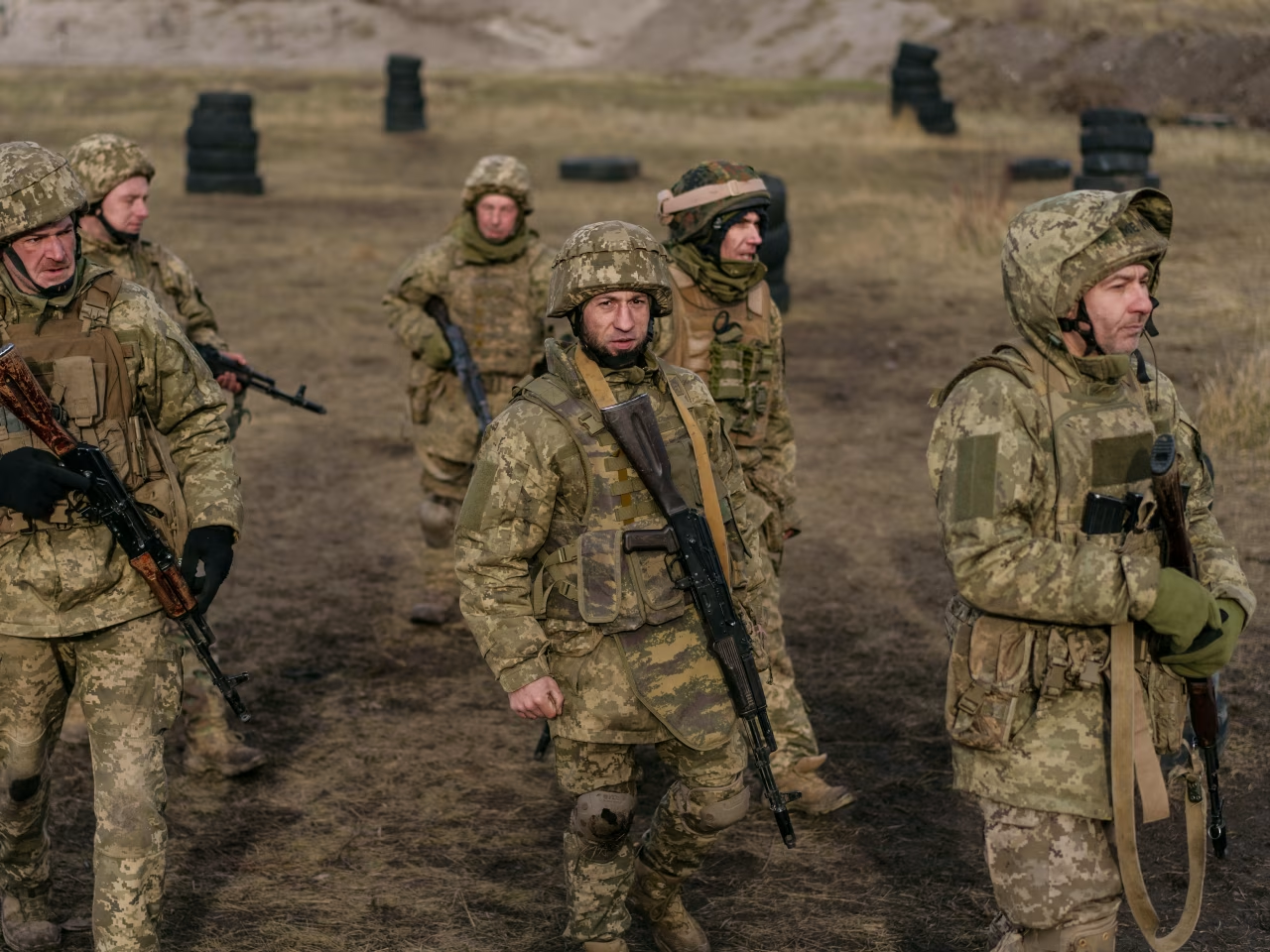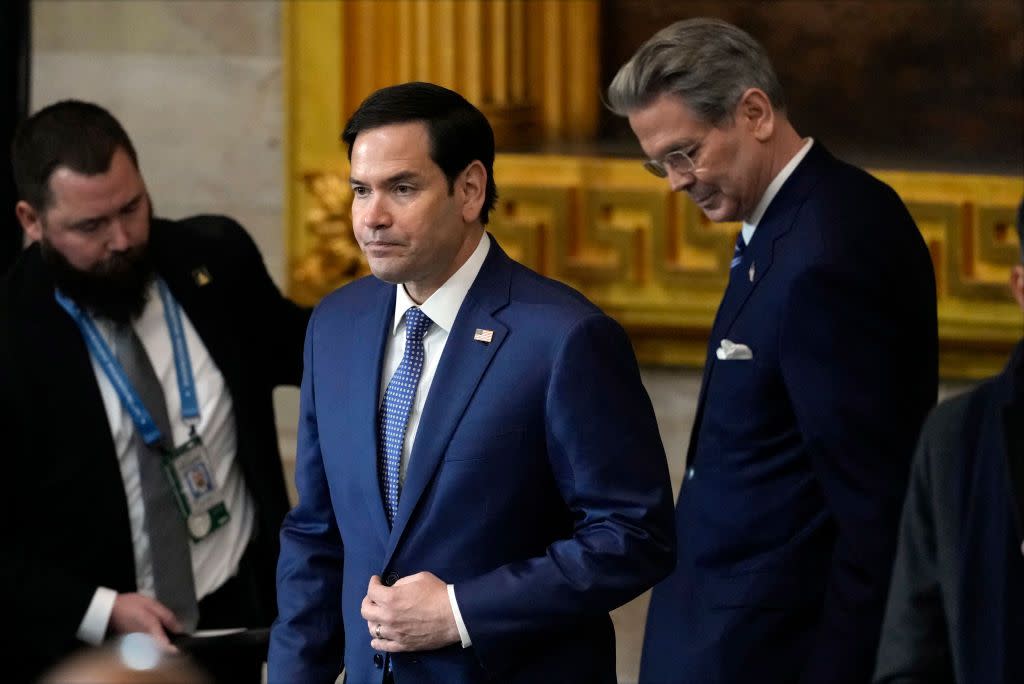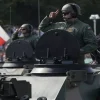Senior American and Russian officials, including the top diplomats from both countries, are set to meet in Saudi Arabia on Tuesday to discuss improving bilateral relations and pursuing an end to the war in Ukraine, according to a statement from the Kremlin on Monday. This will be the most significant meeting between the two sides since Moscow’s large-scale invasion of Ukraine nearly three years ago.
The talks represent another major step by the Trump administration to shift U.S. policy regarding Russia, aiming to break from years of efforts to isolate the country. These discussions are also expected to pave the way for a potential meeting between U.S. President Donald Trump and Russian President Vladimir Putin.
The developments have raised concerns in Kyiv and among key U.S. allies, with many fearing that Washington and Moscow may reach an agreement that does not adequately reflect their interests. In response, France called for an emergency meeting of European Union nations and the U.K. on Monday to decide how to react to the diplomatic initiatives from the U.S. on the war.
Kremlin spokesperson Dmitry Peskov confirmed that Russian Foreign Minister Sergey Lavrov and foreign affairs adviser Yuri Ushakov would travel to the Saudi capital later in the day. U.S. officials, including Secretary of State Marco Rubio, National Security Adviser Mike Waltz, and Special Envoy Steve Witkoff, will meet with the Russian delegation, as stated by U.S. State Department spokesperson Tammy Bruce. Ukraine will not be involved in these discussions.
Peskov explained that the primary focus of the talks will be to “restore the entire complex of U.S.-Russian relations” and prepare for potential discussions regarding the Ukrainian situation, as well as organizing a meeting between the two presidents.
In a statement on Fox News Channel’s “Sunday Morning Futures,” Witkoff mentioned that he and Waltz would be engaging in meetings under the direction of the president, aiming to make significant progress regarding the Russia-Ukraine conflict.
When asked whether Ukraine would be required to give up significant portions of its territory as part of a negotiated settlement, Witkoff did not provide a direct answer. U.S. Defense Secretary Pete Hegseth had suggested last week that Ukraine’s aspirations for NATO membership were unrealistic and that Kyiv might need to abandon its hopes of reclaiming all the territory lost to Russia—two key demands that align with Putin’s interests.
This upcoming meeting is set to significantly expand U.S.-Russia engagement nearly three years into a war that has drastically reduced bilateral relations to their lowest point in decades.

The last significant interaction between Lavrov and then-U.S. Secretary of State Antony Blinken occurred during a brief exchange on the sidelines of a G-20 meeting in India nearly two years ago, lasting around 10 minutes, with no substantial progress toward easing tensions. A separate meeting between U.S. and Russian intelligence officials took place in Turkey in the fall of 2022.
Tuesday’s talks follow a phone call last week between Trump and Putin, in which the U.S. president stated that they had agreed to initiate negotiations immediately. This conversation marked a dramatic shift in U.S. policy, ending the isolation of Moscow over its February 2022 invasion of Ukraine. Afterward, Trump called Ukrainian President Volodymyr Zelenskyy to inform him about the discussions.
On Sunday, Trump told reporters that Zelenskyy “will be involved” in future discussions but did not offer further details. Zelenskyy responded on Monday by expressing his dissatisfaction with the fact that Ukraine had not been invited to the talks, stating that the outcome of the discussions would not be accepted without Ukraine’s participation.
Zelenskyy emphasized that the U.S.-Russia talks would “yield no results” in the absence of Ukrainian officials, highlighting that U.S. policy under President Joe Biden had been rooted in ensuring Ukraine’s involvement in any peace negotiations.
Zelenskyy also confirmed his plans to travel to Turkey on Monday and then to Saudi Arabia on Wednesday, though he clarified that his visit to Saudi Arabia was not related to the U.S.-Russia talks. Andriy Yermak, one of Zelenskyy’s senior advisers, reiterated that there would be no direct meetings between Ukrainian and Russian representatives until a plan for ending the war and achieving a “just peace” was developed.
European Union officials, along with the U.S., have been staunch supporters of Ukraine and have pushed for a role in any peace talks. Both Zelenskyy and his officials have insisted that Europe must be involved in the negotiations.
Lavrov dismissed suggestions on Monday about Europe’s potential role in the talks, stating, “I don’t know what they have to do at the negotiations table.”
Zelenskyy also confirmed that Trump’s special envoy for Russia and Ukraine, retired General Keith Kellogg, would visit Kyiv on February 20 for “broad conversations about security guarantees.”
Zelenskyy expressed a desire to take Kellogg to the front lines and hoped that the insights gained from his visit would be taken back to the White House. He also added, “I think after he goes back to the United States, we will have an understanding on when I will have a meeting with President Trump.”
Zelenskyy mentioned that any potential deal to open Ukraine’s mineral resources to the U.S., as Trump has suggested, would require a written agreement on security guarantees for Ukraine. Ukraine, along with several European nations, has stressed that without such guarantees, Russia could invade Ukraine again, even if a settlement is reached.
Zelenskyy further indicated that these security guarantees could include NATO membership, though Hegseth had suggested such a move was unrealistic. He also mentioned that the guarantees could involve continued military and economic support.


